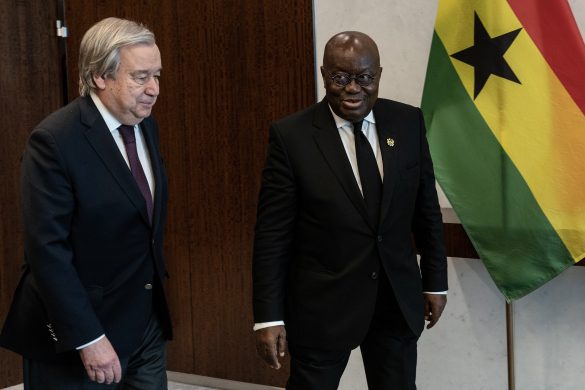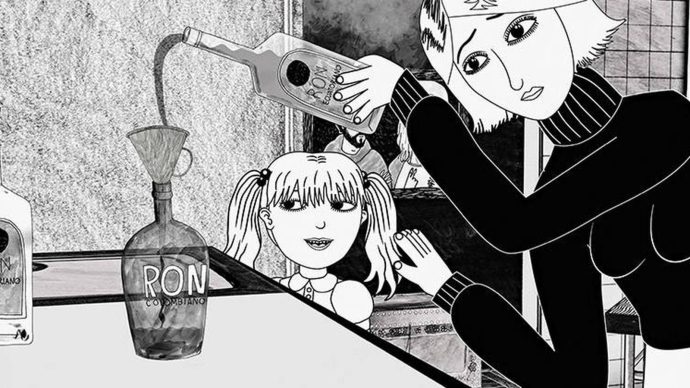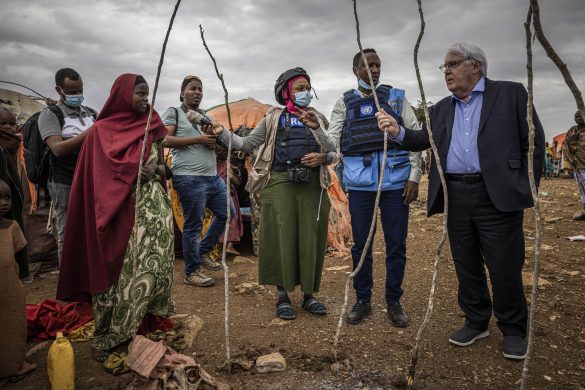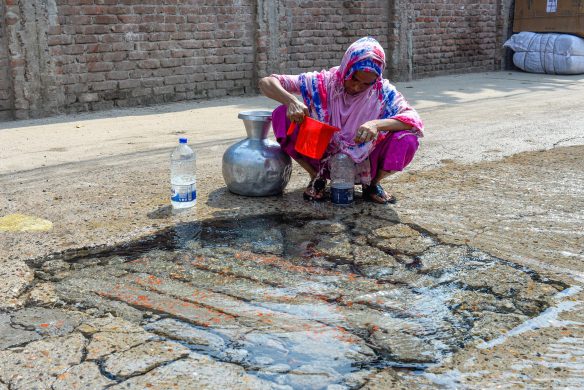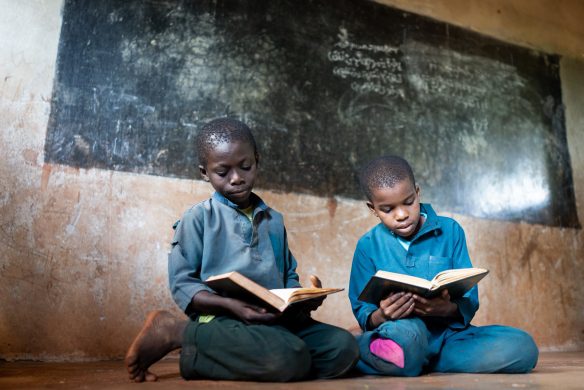Uddrag af omtalen af programsamarbejdslandet Bolivia i det amerikanske udenrigsministeriums årsrapport for 2004 om menneskerettighedernes stilling verden over.
Bolivia is a multiparty democracy with an elected president and bicameral legislature. The year 2003 was marked by major episodes of social unrest.
In October, protestors forced President Gonzalo Sanchez de Lozada, who had been elected in free and fair elections in August 2002, to resign from office and flee the country. After a vote in Congress, Vice President Carlos Mesa Gisbert, a former journalist, historian and human rights activist, assumed office and restored order.
There was wide expectation that the new Government would place great emphasis on human rights, given that then-Vice President Mesa had publicly broken with the Sanchez de Lozada administration over its handling of this issue.
The new Government generally respected the human rights of its citizens, though serious problems remained, due in large part to weak institutions, pervasive corruption, a violent opposition and limited resources.
In the previous Government, there were credible reports of abuses by security forces, including use of excessive force, extortion, arbitrary arrest and detention, and mistreatment of military conscripts. Prison conditions remained harsh, and violence in prisons and prolonged pre-trial detentions were problems.
Other problems included pervasive domestic violence and discrimination against women, the abuse of children and widespread child labor, discrimination against and abuse of indigenous people, discrimination against Afro-Bolivians, brutal working conditions in the mining industry and trafficking in persons.
The highest priorities of the United States in Bolivia are to promote political and social stability and to ensure that the police and military are respecting human rights and cooperating with investigations and prosecutions of alleged violations of human rights.
The U.S. human rights and democracy strategy works to strengthen the judicial system and the rule of law, promote indigenous, workers and womens rights and combat corruption, child labor and potential trafficking in persons.
U.S. officials routinely and publicly highlight the need to improve Bolivias justice system and to make the political system more inclusive. In private, the Ambassador and other embassy officials work with government officials, non-governmental organizations (NGOs) and other organizations to identify areas of particular human rights concern and encourage needed reforms.
To build international support for the new Government, Secretary of State Powell and Deputy Secretary of State Richard Armitage hosted a January 2004 Bolivia Support Group meeting in Washington, with the participation of 19 countries and six international organizations.
To strengthen its capacity for monitoring and acting on cases of alleged human rights abuses, such as torture and extrajudicial killings, the Embassy has hired a Bolivian attorney to work exclusively on human rights issues.
This attorney works with the Bolivian military, police, judiciary and other officials to track human rights cases and investigations for the embassy database and reporting, and to support diplomatic outreach on this critical issue.
The United States continued financial support to the Chimore Center for Justice and Human Rights (CCJHR) in the conflictive Chapare coca-growing region. The Center reported its findings to the Vice Ministry of Justice and Human Rights, disseminated human rights information, accepted and kept records of complaints of abuses, reviewed these complaints with the support of a medical forensic expert and an investigative staff, and referred credible complaints to the Public Ministry.
The Embassy plans to expand justice services at the CCJHR and to establish similar multiple-service justice centers in the city of El Alto and the coca-growing zone of Los Yungas.
In response to the violence in February 2003, the United States contributed the services of professional law enforcement, forensic and ballistic experts as well as equipment to an investigation by the Organization of American States.This eventually resulted in an objective official report and 11 indictments by the Attorney General.
Because many of the human rights abuses occurred within the justice system, the Embassy has focused major human rights and democracy efforts in that sector.
The Mesa government continued to implement a new Public Ministry Law adapting the prosecutorial function of the judicial system to the requirements of the Code of Criminal Procedures (CCP), one of the reforms supported by the United States in recent years.
To date, more than 1.000 police, lawyers, law students, prosecutors, judges and NGO representatives have received training on the new CCP. The Embassy has also provided technical assistance to initiatives undertaken by the Office of the Presidential Delegate to combat public sector corruption and has supported implementation of a Carter Center access-to-information program.
The United States works to support democratic order and social stability in Bolivia in a variety of ways, including U.S. Agency for International Development programs to increase efficacy, accessibility, transparency and the rule of law in municipal government, legislative development, political party reform and anti-corruption.
The participation of women and indigenous people is stressed in these programs, and the Embassy is hiring native language-speaking indigenous advisors to help it better understand and broaden links with this large and under-represented segment of the population.
As part of the U.S. outreach to the indigenous program, the Embassy has sent various members from the indigenous community and officials to participate in 2003 International Visitor programs on topics such as democracy and civic education.
The Embassy Public Affairs Section produces radio programs, news and coverage of significant events in indigenous languages of Quechua and Aymara and created an Aymara publication on key aspects of a U.S.-sponsored 2003 conference on indigenous rights.
In 2004 workshops on democratic values are planned for indigenous and Afro-Bolivian groups as well as a CARE-implemented education-based program to promote improvements in political access and responsible civic and political participation among rural and indigenous populations.
The Embassy routinely raises the importance and provisions of Leahy legislation and other human rights conditions on U.S. security assistance in ongoing contacts with civilian and military officials and has offered support to the Governments own human rights database.
The Embassy continues to conduct interagency vetting on all security forces considered for U.S. training and/or support. The United States also provided ongoing training and seminars to the Bolivian military, including regional Human Rights Consensus Document Implementation conferences.
The Bolivian military has recently assigned a human rights officer to every command. In 2003, the Embassy assisted the National Police to establish a National Directorate of Professional Responsibility to investigate allegations against police officers of malfeasance, wrongdoing and human rights abuses and encouraged the establishment of the first national human rights office for the police.
During the year, policemen and military personnel received crowd control training emphasizing respect for human rights and internationally accepted principles of crowd control. Narcotics police officers also received training on human rights issues as a key part of counter-narcotics training; basic training includes a 40-hour human rights module.
The United States has repeatedly raised with Bolivian officials the need for comprehensive action on trafficking in persons and related child labor and prostitution concerns.
The Embassy has promoted passage of a model anti-trafficking law with senior officials and lawmakers. In 2003, the U.S.-based NGO International Justice Mission provided human rights training to police on the rights of street children, while 1,5 million dollar in funding supported a CARE project working to keep the children of Potosi miners in school and out of the mines.
The United States contributes to school feeding programs, and has a public health project to provide medical diagnosis and counseling on sexually transmitted diseases for prostitutes and the general population.
Kilde: Det amerikanske udenrigsministerium









